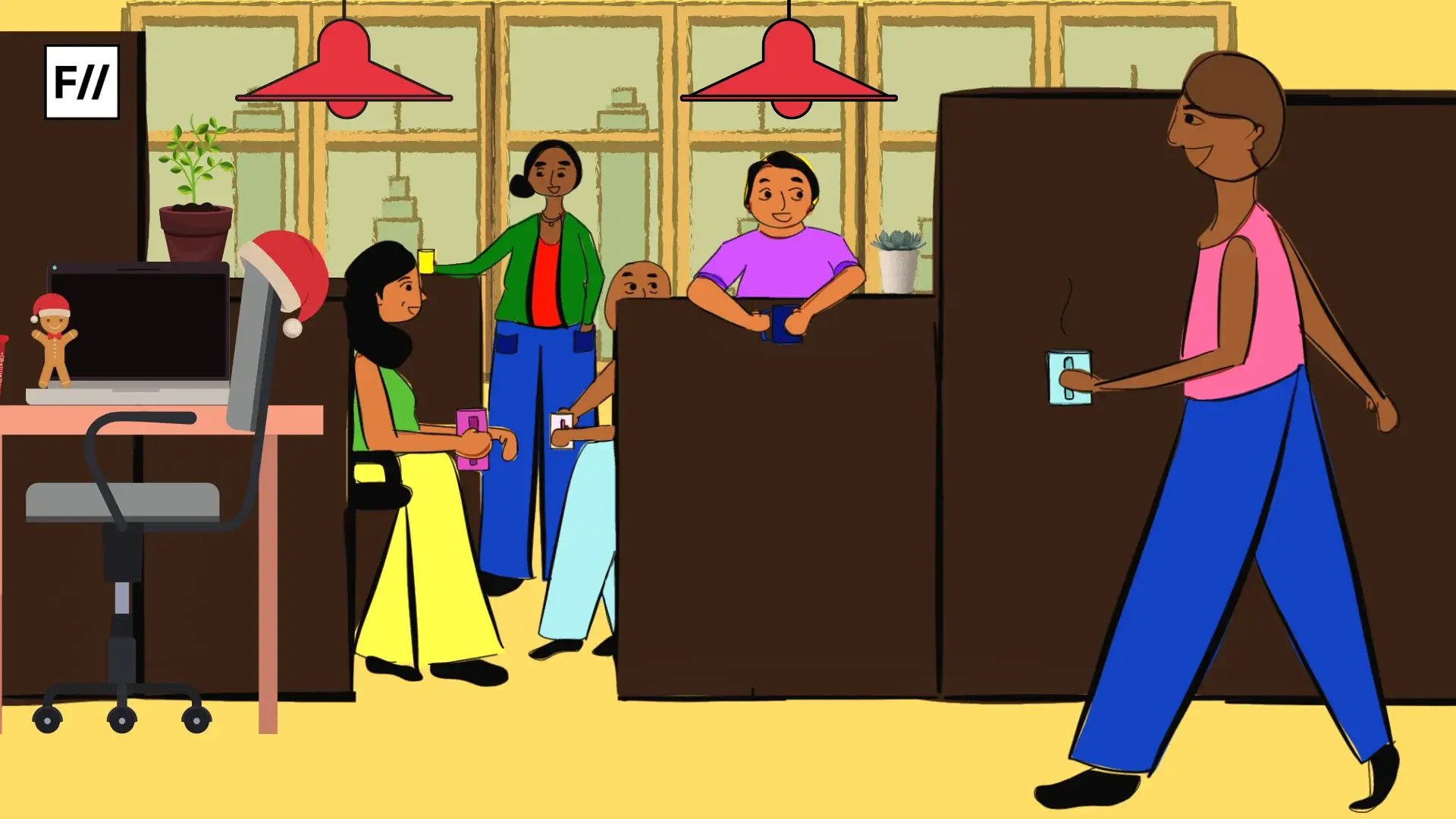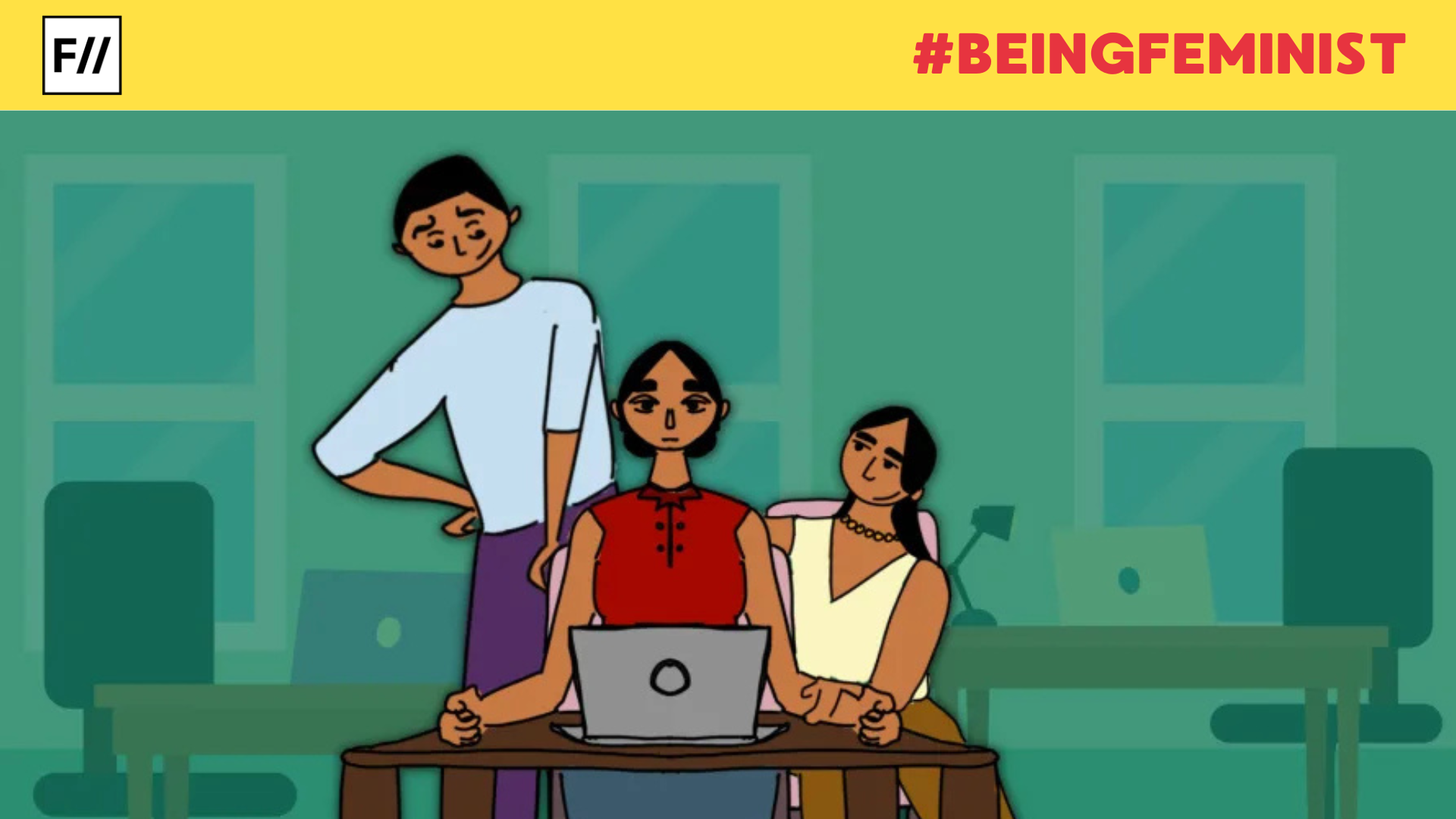Tamil Nadu, the southernmost state contributing 9.21% to the GDP of developing India, is today at the forefront in women workforce participation. In recent years, however, the female labour participation of the state in factories has sinked down, with more women prioritising higher education over temporary, low-paying jobs. This alteration has led to vast inpouring of women into the Information Technology (IT) sector, seen as the popular means for a quick buck.
For Bahujan women in particular, the IT sector creates an illusion of escape from the enduring caste-based discrimination that shadows them through schools, colleges and public life. Yet the lived realities of these women within the tech corridors, hangs in balance. It is a feudal hierarchy that threatens to eliminate those who dare to question the uneven system, precisely why the respondents’ remain anonymous in this article.
Corporates, the caste whisperers
Disparities faced by women in formal jobs in terms of fair monetary remunerations, opportunities and furtherance in their roles is an old festering wound. But for Bahujan women the imbalance is a triple burden, marginalised by caste, repressed by class, and sidelined by gender.
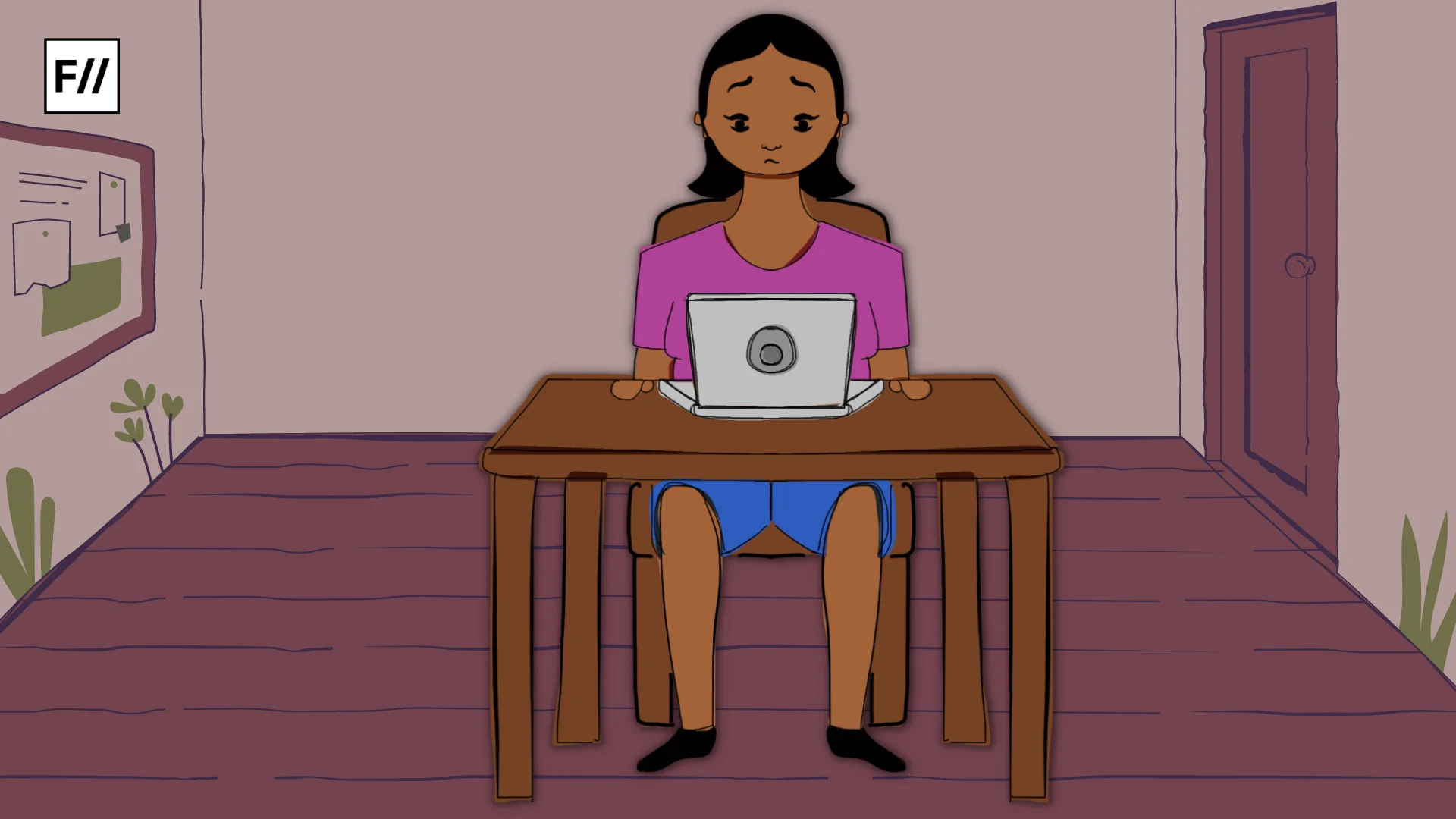
While the diversity and inclusion policies of the Indian counterparts of the top MNCs attempt to reflect upon gender parity, caste remains unnamed. Though some Dalit women, freshers in IT firms in Chennai say that unlike in schools or colleges their caste identities are not explicitly asked or disclosed in the workplace, corporates are only silently casteist. It operates through assumptions, and exclusions that are quietly complied with and rarely addressed.
‘Even if no one asks directly, there are always signals,’ reveals Shalin Maria Lawrence, a Dalit author, activist and a former IT employee. Having held various roles over a decade in corporate offices, she explains, ‘Unlike in the public sector, private companies don’t require caste certificates. Instead the upper-caste seniors have over a hundred subtle markers to identify an employee’s caste. While the upper caste elites proudly flash such caste symbols inviting privileges, the marginalised struggle to conceal them, subsisting the positions they’ve secured.’
Varnas in cubicle
Caste identity of an employee in IT is often decoded by their background, surname, language, college, and the social circles they move in. Dressed up as modern and meritorious, these firms are only a replica of the Hindu Varna system, not by outright rejection, but calculative picking and slotting of candidates based on caste cues, ensuring an uneven power play. Discrimination and disparities begin at square one, during interviews and campus placements, and persist throughout an employee’s journey in the company.
Discrimination and disparities begin at square one, during interviews and campus placements, and persist throughout an employee’s journey in the company.
Tamil Nadu tops the Gross Enrolment Ratio among the Indian states, and the GRE of Dalit women in tertiary education has increased from 19.9% in 2010 to 40.4% in 2021. Yet the appreciative data in terms of education has not translated into equitable employment outcomes.
According to the Dalit Women Rise for Justice status report 2021, only 20.5% of the Dalit women hold regularly salaried jobs. While Bahujan women overall have a 5.9% higher employment rate than the upper-caste women, their presence in the formal service sector remains disproportionately low. Only 23.3% for Dalit and 22.6% for OBC women, compared to 39.4% for dominant-caste women. This includes the sanitation and housekeeping roles, majorly assigned to Dalits.
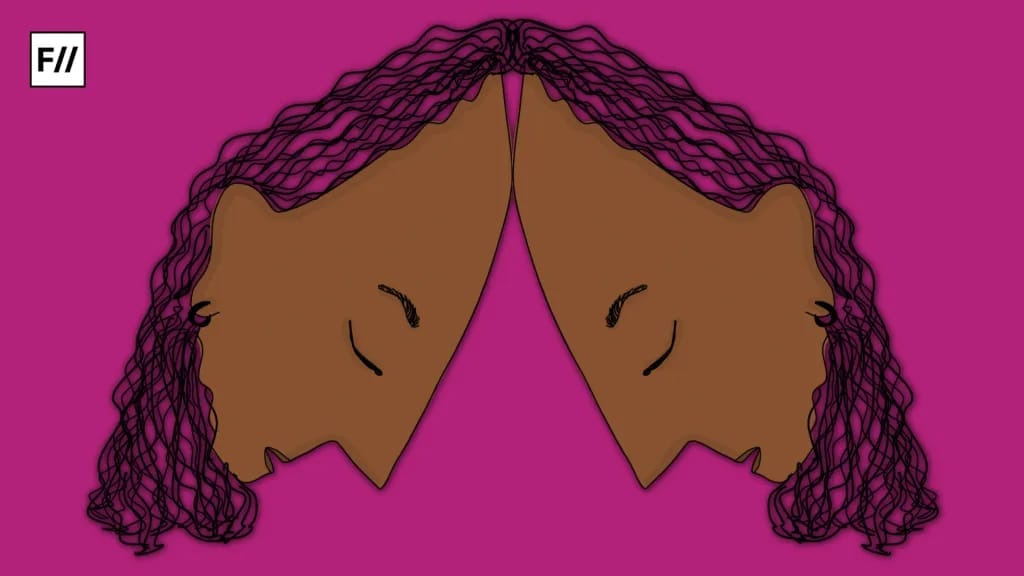
One of the key reasons behind this vast imbalance is because the state’s Dalit population is concentrated in its rural parts. According to the 2011 census, Dalit female population in rural Tamil Nadu is approximately 90% higher than in urban areas. For many of these women, the survivors of generational caste abuse, the prospect of migrating to cities for employment is haunting.
Fearing alienation in the cities, many qualified Dalit women remain in rural manufacturing jobs. In Tiruvallur, just 45 km from Chennai, of the factory workforce are predominantly Dalit women including graduates, are subjected to financial and sexual exploitation.
Shalin reveals, ‘Interviews are the most dreaded process for Dalit women. The interviewers often attempt to trace your caste through probes on your food habits, culture, patron deity etc, if your last name doesn’t give you away.‘ She adds ‘Sometimes, derogatory casteist remarks are slipped in as jokes. Do we laugh along and keep the job or don’t and lose it?‘
Another Bahujan IT employee with 5 years of experience recalls, ‘At the campus interview I attended, 8 out of the 20 selected students were Brahmins. And this pattern hasn’t changed, it’s the same story in my office’s hiring process even today.’
Unlike the upper-castes, most Dalits are first generation graduates, entering the corporate world without the cushion of influential networks. This often isolates them in an environment that was never designed for their inclusion.
Unlike the upper-castes, most Dalits are first generation graduates, entering the corporate world without the cushion of influential networks.
Further, with public sector jobs shrinking and the TN government’s 2025–26 budget announcing the setting up of a hi-tech ‘Global City’ featuring private IT parks and R&D centres well-connected by metro, neoliberal privatisation in the state is accelerating rapidly. Hence as argued largely by educationists and a fraction of left parties, reservation in the private sector is now essential to ensure equal access to opportunities and decision-making roles for marginalised communities.
Promotions and appraisals
In the private sector, caste operates as a social capital, deciding one’s proximity to hierarchy. Seniors often only back the candidates from the same or at least equal caste and class background as theirs. Employees closer to them are allotted less and high-impact work, while those with a vulnerable status are bombarded with work load. Promotions, salary hikes, and access to key opportunities are also determined on the caste lines.
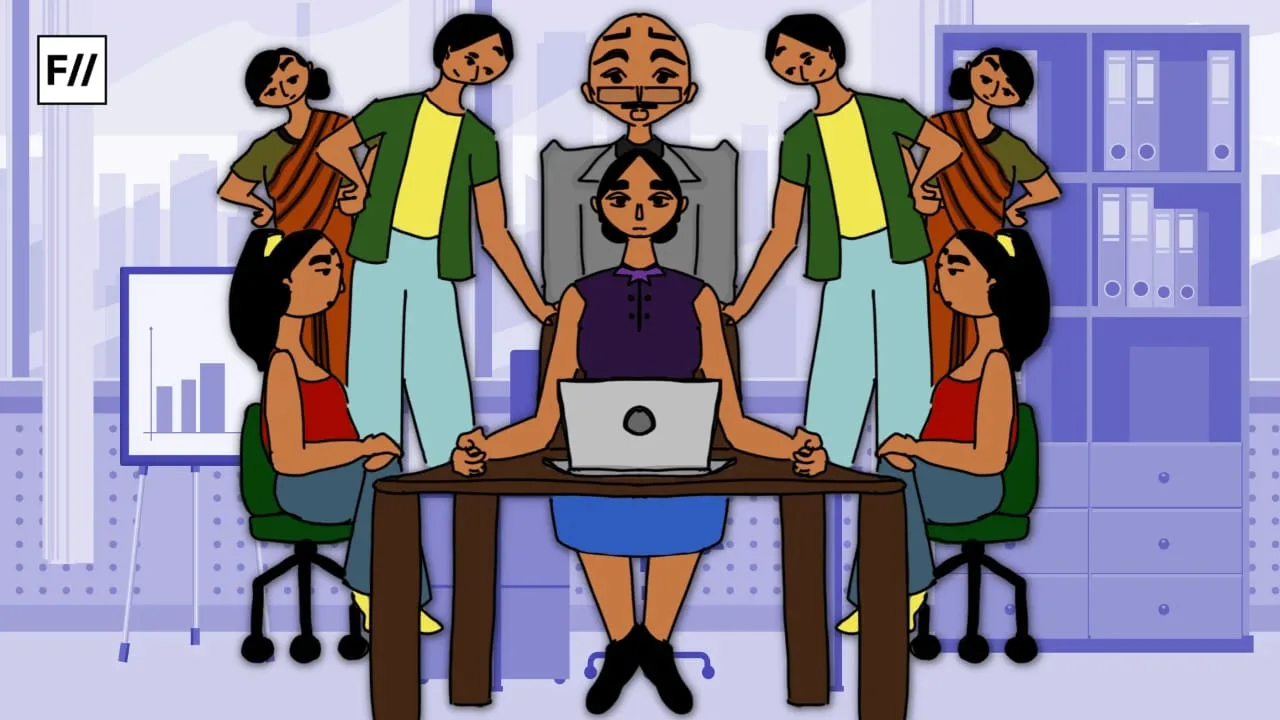
Alagunambi Welkin, the General Secretary of the Union of IT & ITES Employees (UNITE), Chennai, discusses, ‘IT is a feudal set up, and most of its policies are merely an eyewash. On the surface, there appears to be systems in place, fairly evaluating performances for promotions and appraisals. But these decisions are often subjective, manipulated by the priorities of the dominant caste seniors.‘ ‘Whether layoffs or promotions, caste, class, and gender outweighs performance.’, he adds.
Among the 20 Bahujan women I spoke to, only two were part of female-led teams and none had Dalits in leadership roles, be it as managers, senior managers, CIOs or CEOs. Shalin mentions, ‘After years of hard work and inhibition, I finally held senior positions, as a manager in one company and marketing head in the other. For a while I believed I had outrun caste. But it overpowered even my place in the hierarchy.’
Lunch table caste conversations
‘For a long time, I told my colleagues the beef in my tiffin box was mutton, just so they don’t see me differently.’ says a Dalit employee at a top MNC in Chennai. The pressure to conceal identities does not stop with the lunch box, it extends to clothes, language, and even the music they listen to, forcing Dalits to constantly edit themselves.
Yes, caste is not openly acknowledged in corporate offices, but casteist jokes, slurs, and stereotypes circulate freely among employees. Terms like ‘Pullingo’, a Tamil slang used to typecast Dalits with coloured hair and distinctive fashion, are tossed around casually, however, Dalit dialects are considered inappropriate or unprofessional within the same spaces.
Another respondent from TCS, Chennai shares, ‘We are a 14-member team, and I’m the only Dalit. I work with colleagues who proudly say they wouldn’t drink water from a Dalit household.‘ She continues with a giggle, ‘But unaware I’m a Dalit, they once lunched at my house. I often wonder what they’d do if they found out.’
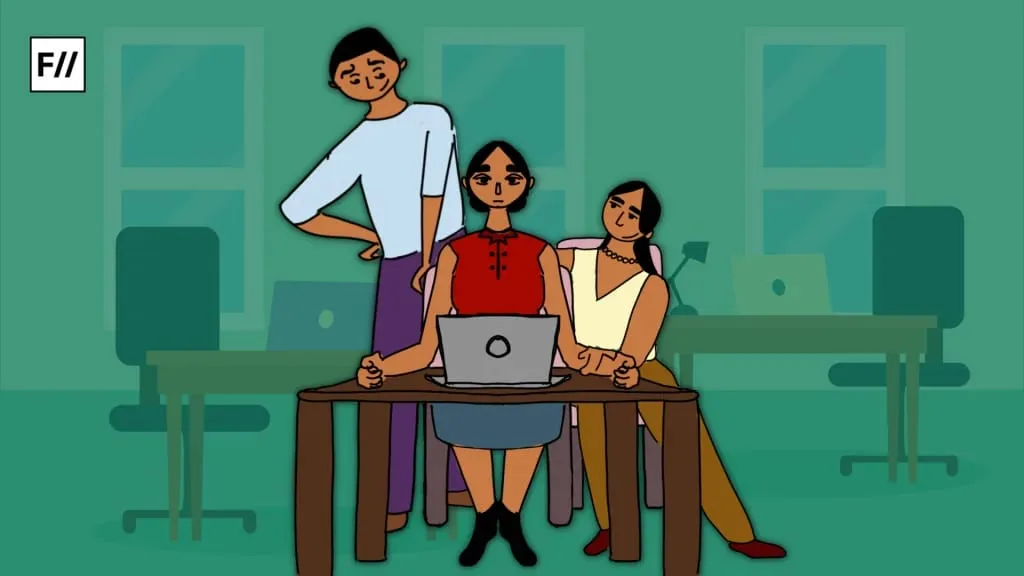
Further, corporate spaces carry a collective aversion for reservation candidates, often pigeonholing them as unskilled. A dalit fresher from Infosys, Chennai, and an IIT post graduate painfully shares, ‘I received no practical training for my assigned project. My teammates constantly judge and belittle me for not knowing things. With no support, my self-esteem has plummeted, and I fear I won’t make it. I’ve even started therapy.‘ For many marginalised women, IT firms become sites of emotional erosion pushing them to the brink, yet offering no real choice to exit.
Thus the MNCs in India with zero transparency around caste composition and policies, hold ultimate power, continuing to exploit the vulnerable. Ironically, the MNCs top-ranked in India also report the highest social and gender discrimination cases, but are wrapped up by the grand philanthropy stunts of their founders.
Unfortunately, almost half the Bahujan women still remain unaware of the caste-abuse they are being subjected to, because addressing caste issues is still a taboo, while casteism is not. Unlike the overt discrimination of society, the modern workplace cloaks its casteist structures behind glass walls and sanitised language, keeping them in delusion that hard work alone pays off. While providing awareness and practicing reservation in the IT sector may not be the holistic solutions, they definitely are far- reaching steps towards creating equal workspaces for marginalised women.
